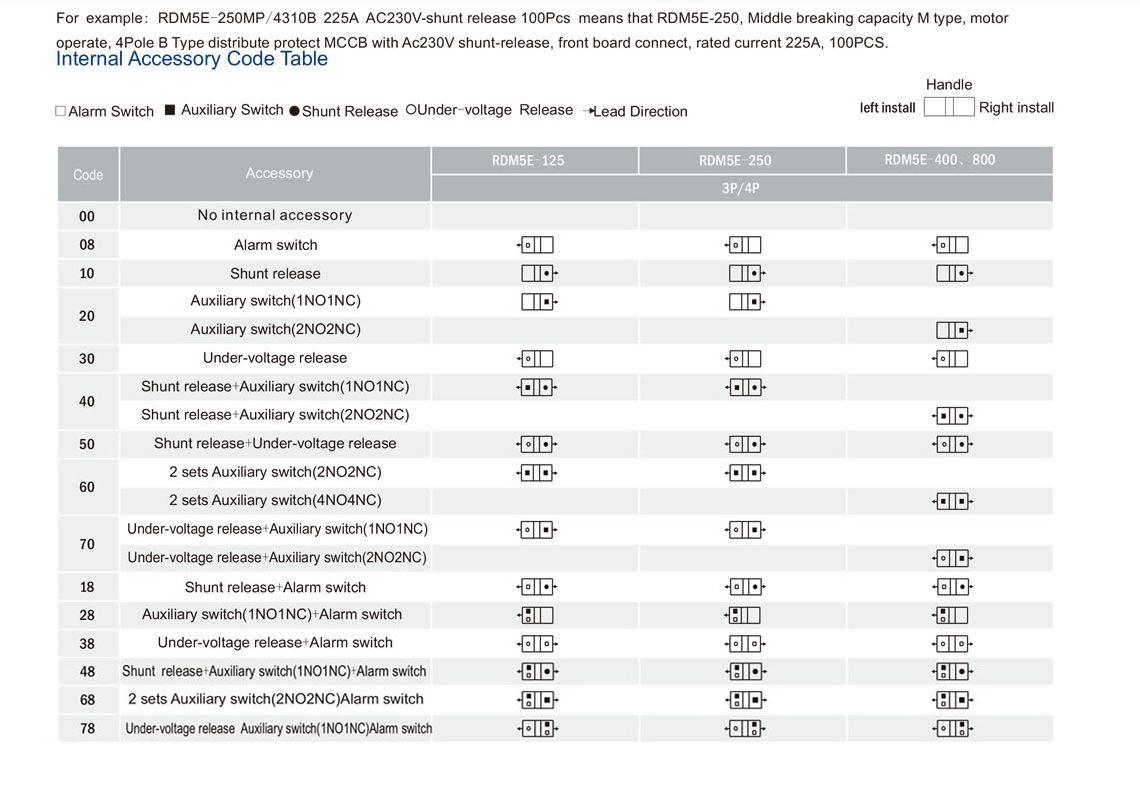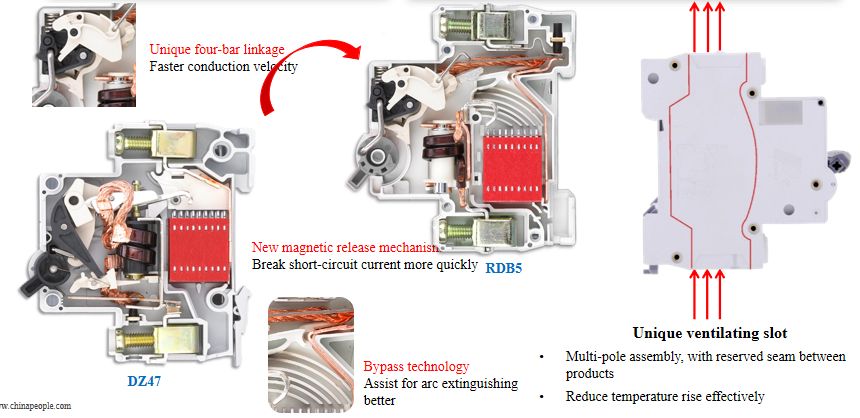This week’s EYE ON NPI (video) is PIC GmbH’s LP Series Reed Switch Chains, a range of a new kind of liquid level sensor.
Not surprisingly, this sensor uses a chain of reed switches and a magnetic float to detect the liquid level in a bucket or tank – we’ve never heard of this kind of sensor, so we picked one up to check it out! Arc Extinguishing Chamber

Using a single reed switch for determining liquid level is not new – it’s a common way to have a isolatable sensor for food-safe or caustic fluids.
Compared to some other liquid level sensors like eTape which needs to be ‘squeezed’ by the liquid to give a continuous resistive reading, or sonar which needs to be able to bounce air off, or ToF sensors which can be affected by surface reflectivity/absorption, a reed relay is fully electrically and mechanically isolated. The whole thing can be covered in inert materials and easily cleaned or sanitized.
For more details on selecting fluid level sensors check out this DigiKey article.
The PIC LP Series Reed Switch Chain is made of a thick PCB that is routed down the middle and has tightly packed reed switches soldered one after the other with 1K resistors between each one.
A each reed switch closes, the two contacts will measure a resistance that contains all the ‘lower’ 1K resistors in series. So, say if the first reed switch is triggered the resistance will be 0 ohms, if the next reed is closed the resistance is 1K ohms, all the way up to (n-1)*1K ohms where n is the number of reed switches installed.
In order to have the reed switches activate with the liquid level, you’ll also need a donut/toroid-shaped magnet float which is stocked over at PIC or a generic one can be used if you need particular material.
The PCB comes bare and you’ll need to put it in a tube that matches your material handling requirements. Also, if you need a longer chain, you can abut them end-to-end and solder them – some mechanical stabilization may also be required.
Even though this is designed for liquid float sensing, it could also be adapted to be used as a sliding-platform locator: just watch out that you don’t exceed the switch activation lifetime limit – it’s a few million but these will be hard to replace if they get damaged. Another nifty side-effect of using reed switches is that they can withstand higher voltages, and since they are not powered, can be wired directly into circuitry that is not ground-referenced and don’t care about noise, EMI, static or other common annoyances of industrial automation.
There’s also some other cool items from PIC to check out at DigiKey, such as SMT reed switches which we didn’t know existed, and individual reed floats if you don’t need continuous level detection.
If you want to have a fully mechanically isolated level or position detector that is simple, inexpensive and doesn’t require external power, this could work very nicely! And best of all, PIC GmbH’s LP Series Reed Switch Chains are in stock and available right now for purchase at DigiKey in a range of sizes. Order today and you’ll be floating on air… er… liquid, by tomorrow afternoon when DigiKey packs and ships your order immediately.
Adafruit publishes a wide range of writing and video content, including interviews and reporting on the maker market and the wider technology world. Our standards page is intended as a guide to best practices that Adafruit uses, as well as an outline of the ethical standards Adafruit aspires to. While Adafruit is not an independent journalistic institution, Adafruit strives to be a fair, informative, and positive voice within the community – check it out here: adafruit.com/editorialstandards
Adafruit is on Mastodon, join in! adafruit.com/mastodon
Stop breadboarding and soldering – start making immediately! Adafruit’s Circuit Playground is jam-packed with LEDs, sensors, buttons, alligator clip pads and more. Build projects with Circuit Playground in a few minutes with the drag-and-drop MakeCode programming site, learn computer science using the CS Discoveries class on code.org, jump into CircuitPython to learn Python and hardware together, TinyGO, or even use the Arduino IDE. Circuit Playground Express is the newest and best Circuit Playground board, with support for CircuitPython, MakeCode, and Arduino. It has a powerful processor, 10 NeoPixels, mini speaker, InfraRed receive and transmit, two buttons, a switch, 14 alligator clip pads, and lots of sensors: capacitive touch, IR proximity, temperature, light, motion and sound. A whole wide world of electronics and coding is waiting for you, and it fits in the palm of your hand.
Have an amazing project to share? The Electronics Show and Tell is every Wednesday at 7pm ET! To join, head over to YouTube and check out the show’s live chat – we’ll post the link there.
Join us every Wednesday night at 8pm ET for Ask an Engineer!
Join over 36,000+ makers on Adafruit’s Discord channels and be part of the community! http://adafru.it/discord
CircuitPython – The easiest way to program microcontrollers – CircuitPython.org
Maker Business — “Packaging” chips in the US
Wearables — Enclosures help fight body humidity in costumes
Electronics — Transformers: More than meets the eye!
Python for Microcontrollers — Python on Microcontrollers Newsletter: Silicon Labs introduces CircuitPython support, and more! #CircuitPython #Python #micropython @ThePSF @Raspberry_Pi
Adafruit IoT Monthly — Guardian Robot, Weather-wise Umbrella Stand, and more!
Microsoft MakeCode — MakeCode Thank You!
EYE on NPI — Maxim’s Himalaya uSLIC Step-Down Power Module #EyeOnNPI @maximintegrated @digikey
New Products – Adafruit Industries – Makers, hackers, artists, designers and engineers! — #NewProds 7/19/23 Feat. Adafruit Matrix Portal S3 CircuitPython Powered Internet Display!

Ac Contactor Sorry, the comment form is closed at this time.